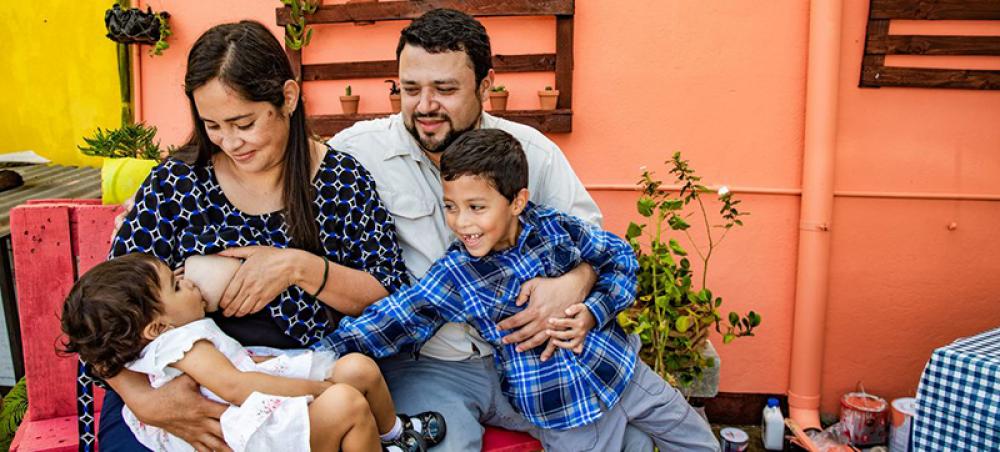Just Earth News | @justearthnews | 02 Aug 2022, 02:31 am Print
 Breastfeeding
Breastfeeding Image: UNICEF/UN0590878/Willocq
New York: It’s more critical than ever to begin life as a newborn being breastfed, according to the head of the World Health Organization (WHO) and the Executive Director of UN Children’s Fund UNICEF.
Tedros Adhanom Ghebreyesus and UNICEF chief Catherine Russell, issued a joint statement on Monday, marking the start of World Breastfeeding Week, and pointed out that global crises, supply chain shocks and insecurity threaten the health and nutrition of millions of babies and children like never before.
This World Breastfeeding Week, under its theme Step up for breastfeeding: Educate and Support, UNICEF and WHO are calling on governments to allocate increased resources to protect, promote, and support breastfeeding policies and programmes, especially for the most vulnerable families living in emergency settings.
Safe, nutritious, accessible
During emergencies, including those in Afghanistan, Yemen, Ukraine, the Horn of Africa, and Africa’s vast Sahel region, breastfeeding guarantees a safe, nutritious and accessible food source for babies and young children, the agency chiefs noted.
“It offers a powerful line of defence against disease and all forms of child malnutrition, including wasting. Breastfeeding also acts as a baby’s first vaccine, protecting them from common childhood illnesses.
Yet, they added, “the emotional distress, physical exhaustion, lack of space and privacy, and poor sanitation experienced by mothers in emergency settings, mean that many babies are missing out on the benefits of breastfeeding to help them survive.”
Breastfeeding deficit
According to the UN, fewer than half of all newborns are breastfed in the first hour of life, leaving them more vulnerable to disease and death. And only 44 per cent of infants are exclusively breastfed in the first six months of life, short of the WHO run World Health Assembly’s target, of 50 per cent by 2025.
“Protecting, promoting, and supporting breastfeeding is more important than ever, not just for protecting our planet as the ultimate natural, sustainable, first food system, but also for the survival, growth, and development of millions of infants”, said Tedros and Russell.
Action points
The agency chiefs said that to increase the numbers of babies being breastfed worldwide, governments, donors, civil society, and the private sector need to focus on four key areas.
Prioritizing investing in breastfeeding support policies and programmes, especially in fragile and food insecure situations.
Equip health and nutrition workers in facilities and communities with the skills they need to provide quality counselling and practical support to mothers.
Protect caregivers and healthcare workers from the unethical marketing influence of the baby formula industryby fully adopting and implementing the International Code of Marketing of Breast-Milk Substitutes, including in humanitarian settings.
Implement family-friendly public health policies and initiatives, that provide mothers with the time, space, and support they need to breastfeed.
- Alarming projection: Global breast cancer cases could cross 3.5 million by 2050, shows study
- Exam stress to emotional distress: Study reveals the dark side of academic pressure
- Vegetarian diet linked to lower risk of five major cancers, study finds
- Ukraine’s health system under fire: Attacks spike 20% in 2025, WHO warns
- A dog’s loving lick turned deadly — She woke up without her limbs





-1763561110.jpg)
